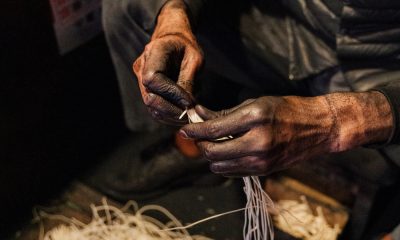Business
To Dance or Not to Dance
There’s a new law in town, except it’s an old law, and nothing to celebrate: no dancing after 1am. If you’re a weekend clubber, you may already have had your party stopped abruptly by the law. Nightclubs that used to close at 5am are now closing at 3am or even 1am. Even worse, some nightclubs have shut down completely.
Over the last year and a half, Kansai police have been targeting Osaka and Kyoto nightclubs in draconian raids, and arresting owners and managers under the Fueiho law, the law that governs adult entertainment business. The dancing aspect of the Fueiho law has been on the books since the post-war occupation era, when it was enacted to give police a means to combat prostitution in GI-frequented nightclubs. The law states that a nightclub must have a license to permit dancing. However, once the nightclub gets the license, it must close at 1am. This, in effect, means it is illegal to dance in Japan after the hour of 1am!
The law has largely been unenforced for decades. A thriving nightlife culture has grown up in major cities like Tokyo, Osaka and Kyoto. Internationally-known DJs have been nurtured in Japan’s cities. Japanese electronics makers like Pioneer, Technics and Roland make the best DJ equipment in the world. But recently in Osaka and Kyoto, for reasons that are not altogether clear, the crackdown has begun. Typically, the police will issue a warning for violation of the dancing law to a bar or nightclub that doesn’t have a fuzoku license. The second time, the police will arrive in full riot gear and arrest the owner and manager. In the case of one club in Umeda, eight staff members were arrested for allowing people to dance. Generally, those arrested are kept in detention for 23 days, fined 500,000 yen each and then released after confessing to the crime of making people dance.
Renowned Japanese composer Ryuichi Sakamoto has denounced the recent climate of crackdowns as a threat to artistic culture and self-expression. He has lent his name to an organization, Letsdance.jp, which is trying to get 100,000 signatures for a petition against the police actions. As KS went to print, Letsdance.jp has garnered nearly 31,000 signatures to date.














